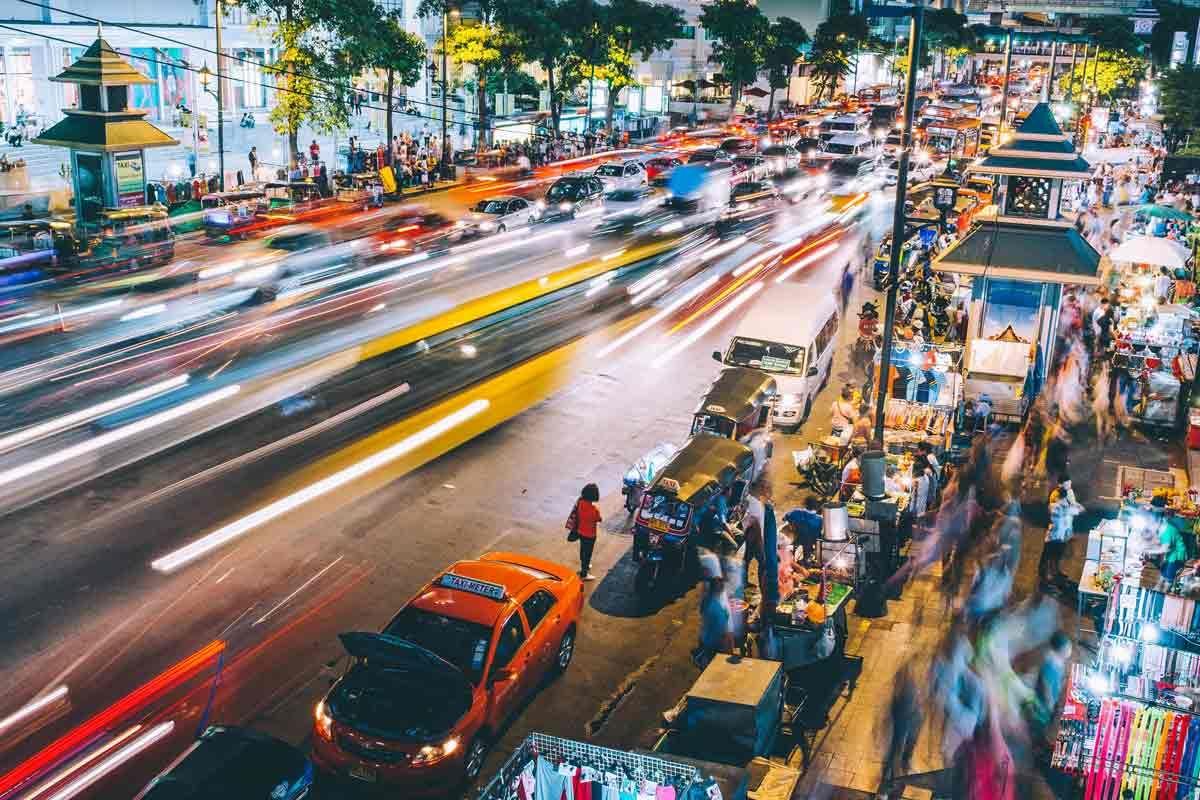
Responsible tourism in Thailand part 1
Like any popular tourist destination the activities in Thailand do have their dark side. So how to be a responsible traveler and choose the hotels, restaurants and trips from ethical and ecological perspective? Straightforward responsible tourism means that the chosen activity supports the locals and doesn’t harm the nature or animals - but making the right choice is not always easy. Some activities that might seem harmless are actually abusive when you take a closer look. So remember to do your research to have a positive holiday in Thailand in all aspects! Internet is a great source of information and we collected a small guide to help choosing activities, restaurants and accommodation.
 Riding elephants and other animal entertainment
Riding elephants and other animal entertainment
As a rule of thumb, it is good to remember that unless you meet the wild animal in nature it is time to research the place before visiting. If the place offers elephant rides, elephant bathing or taking selfies with tigers it is better to avoid the place. It is good to keep in mind that these are wild animals who will never be domesticated. There is always something dodgy in behind the elephant doing tricks and the tigers posing calmly.
Riding an elephant is always animal abuse, no matter how calm or happy the elephants might seem. It is true that they are big animals, but their spine is not built to carry heavy objects on their back. Besides not having the spinal structure for this type of activity the “training” of elephants is often brutal. In traditional ”Phajaan” the young elephants are tied up from their legs for long periods. While tied up they get beaten up with bullhooks without food or drink to crush their spirit. After a period of torture mahout, the keeper of the elephant comes and gives the crushed animal food, water and acts kind towards the poor animal. The purpose of all this is to make the elephant trust this first human that is not hurting her.
Besides the elephant activities it is advisable to avoid all other animal activites, where you can pose or interact with wild animals like tigers or tarsiers. The animals are often sedated or their nails and teeth have been removed to make them act calmly in the pictures. Please do not be part of animal abuse for a new profile photo.
Is there an ethical way to participate on animal activities? Luckily the answer is yes. You can find multiple elephant sanctuaries around Thailand, where the often rescued animals are living in their natural habitat. Research is always the key to find a place that treats the animals right. If you want to pet and cuddle with animals always choose domesticated ones. There are plenty on animal rescue centers in Thailand, where homeless cats and dogs are waiting for affection. By visiting an animal rescue center, you also help the more timid pets get used to humans. This will increase their chances to get adopted!
Eat and Sleep responsibly
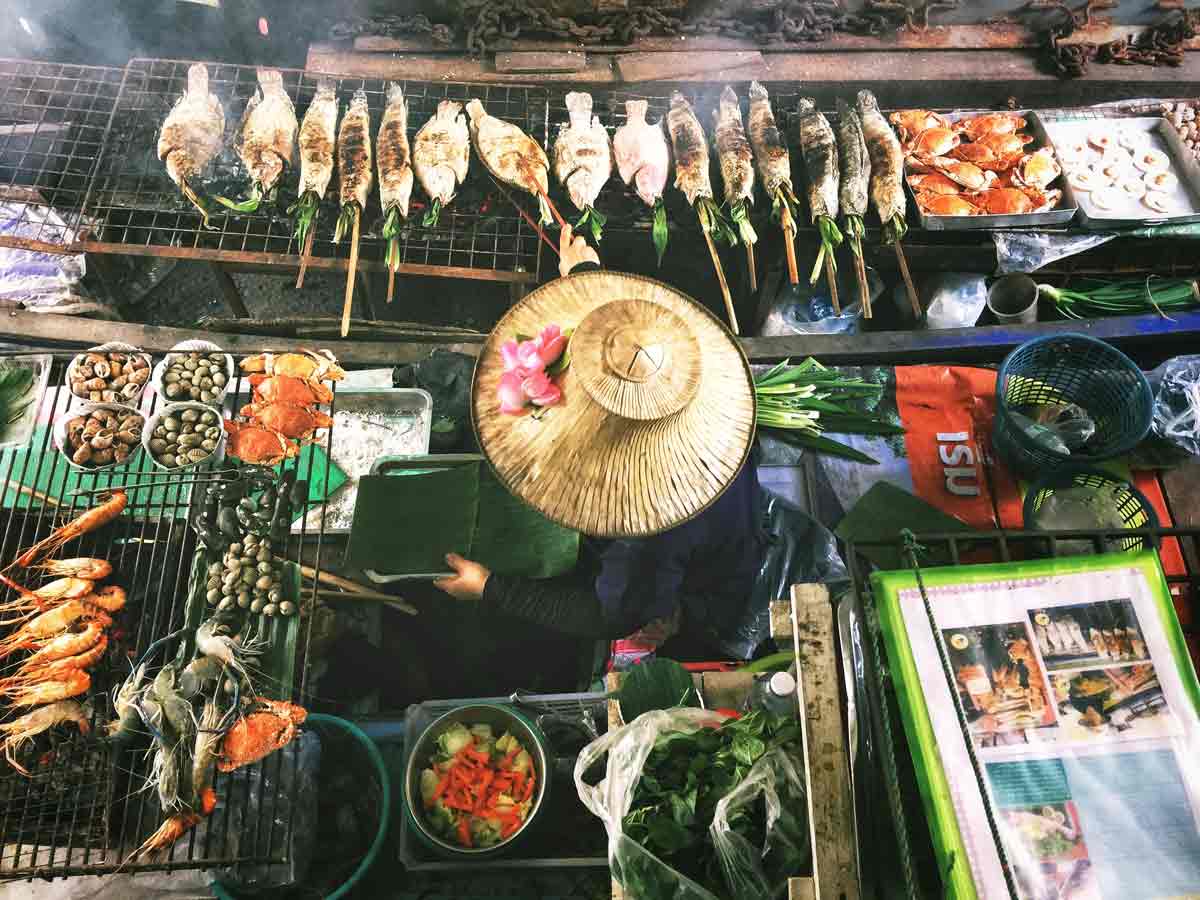 When choosing a hotel or a restaurant make sure that you support local businesses instead of the international chains. Quite often the expensive chains are paying their local staff very poorly and provide inhumane working conditions. So instead of these fancy hotels look for a small or medium size family run places to stay. This way you can guarantee that the money will go directly to the locals.
When choosing a hotel or a restaurant make sure that you support local businesses instead of the international chains. Quite often the expensive chains are paying their local staff very poorly and provide inhumane working conditions. So instead of these fancy hotels look for a small or medium size family run places to stay. This way you can guarantee that the money will go directly to the locals.
Same rules apply to dining. Avoid chains and choose local but for the local economy and your taste buds. The most delicious and authentic dining experiences are found from food stalls and restaurants with plastic chairs. The meat and vegetables are often produced locally as well, so eating local is sustainable in many ways!
In Thailand there are few dishes to avoid, such as bird’s nest soup and shark fin soup. The latter is made out of shark’s fins that are cut off from the living animal. After the cutting the shark is thrown back to the ocean. Sharks need to move to be able to breathe so after this brutal harvesting of fins she will suffocate to death. Birds nest soup is made out of swiftlets nests and their numbers are decreasing due the increasing demand of the nests. Besides that, the working conditions of the people harvesting the nests are dangerous and injuries and even death are not uncommon.
Orphanages
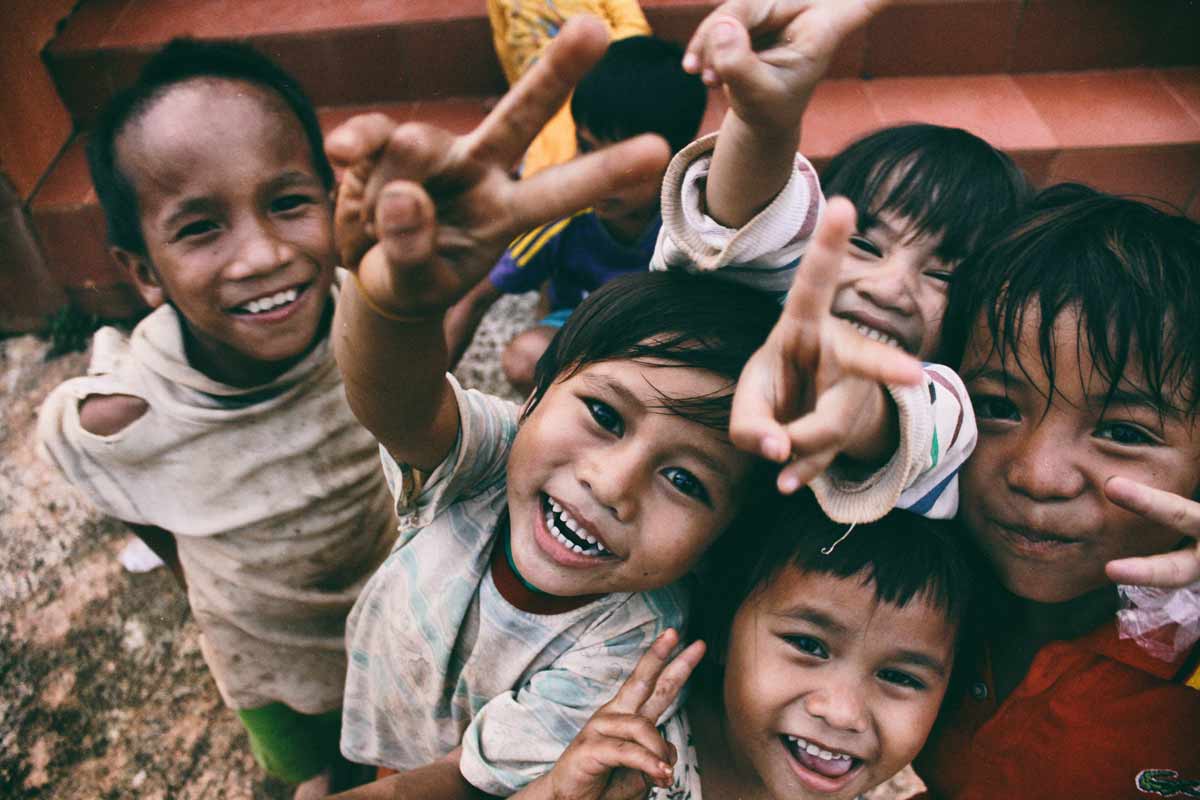 Visiting or even volunteering in orphanage to help the children who have had a tough start to their lives might seem like a harmless idea, but in reality, these activities might do more harm than good to the traumatized kids. And once you realize why it will make perfect sense. Think about any western country having untrained people working with kid who have already gone through traumatic experiences. Then add the high turnover of the volunteers so the kids will be separated from the people they get attached to over and over again.
Visiting or even volunteering in orphanage to help the children who have had a tough start to their lives might seem like a harmless idea, but in reality, these activities might do more harm than good to the traumatized kids. And once you realize why it will make perfect sense. Think about any western country having untrained people working with kid who have already gone through traumatic experiences. Then add the high turnover of the volunteers so the kids will be separated from the people they get attached to over and over again.
So no matter how well you mean by volunteering it is not a good idea. In addition to that many of the orphanages become businesses rather than places of care. Some of the kids staying in these places do have actual parents that have been encouraged to give them away to the orphanage, so they can make money out of well-meaning volunteers.
If helping children is close to your heart there are still ways to help the orphans. If you do have an education that prepares you to work with traumatized kids your help might be very valuable, if you can commit to work for longer periods of time than month or two. If you do not have the education you would need to work with kids back home but still want to help there are ways to volunteer to a position where you won’t be in contact with the orphans.
 Mâi sài tŭng kráp/kâ – No thank you, I do not want a plastic bag
Mâi sài tŭng kráp/kâ – No thank you, I do not want a plastic bag
An important part of being a responsible traveler is to pay attention to what we leave behind when we fly back home. Within past few years Thailand has been taking gigantic steps in reducing plastic. On the island of Koh Tao it is difficult to find shops that automatically pack your shopping to a plastic back. As a matter of fact quite a few shops including the mighty 7/11 is not giving out single use bags at all anymore. If it looks like like the cashier is doing that, you can always politely say no!
Besides avoiding single use plastics you can also participate the cleaning days, where the waste gets collected out from the nature to be recycled properly. Cleanups are organized all around Thailand by Trash Heroes.
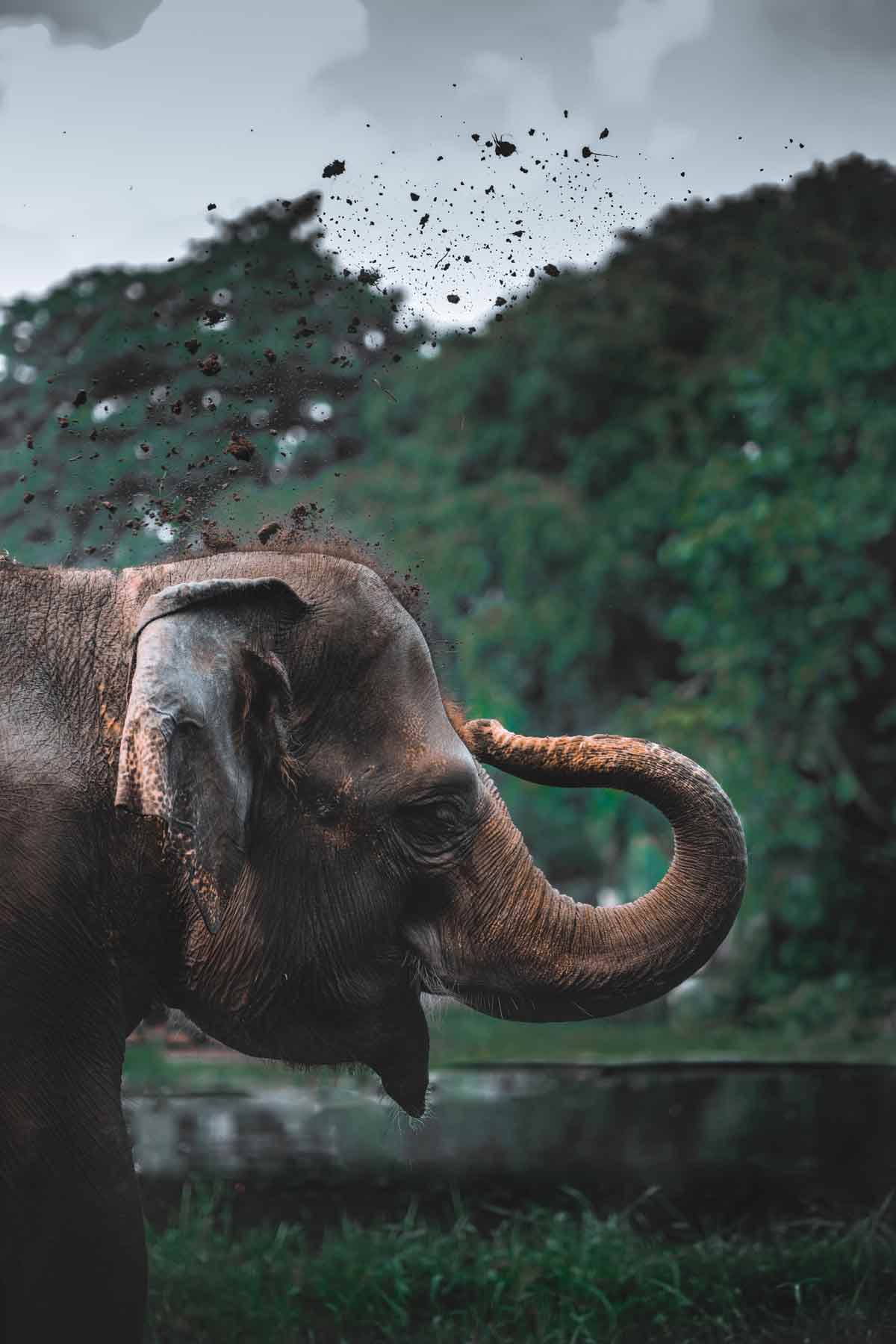 Riding elephants and other animal entertainment
Riding elephants and other animal entertainment 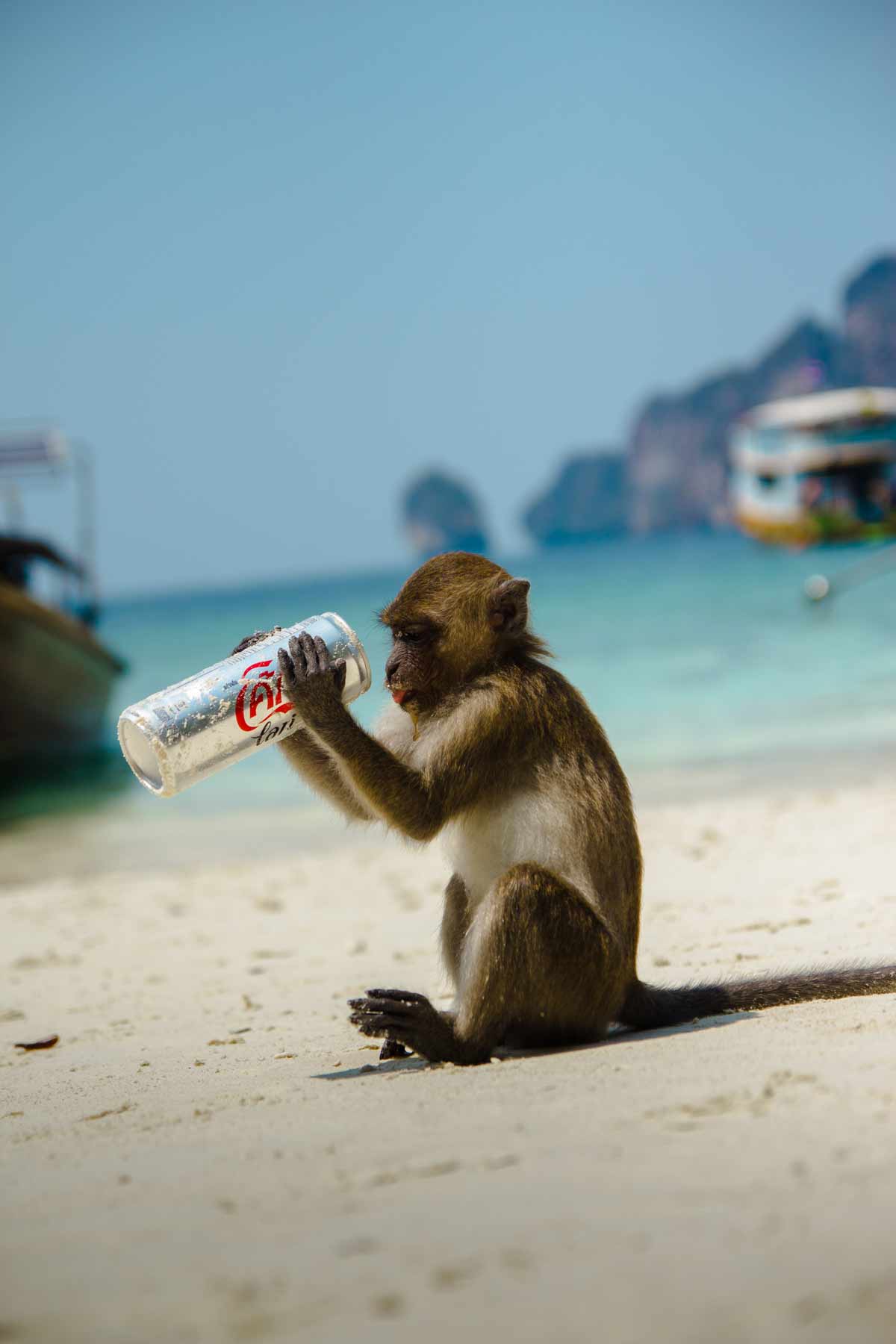 Mâi sài tŭng kráp/kâ – No thank you, I do not want a plastic bag
Mâi sài tŭng kráp/kâ – No thank you, I do not want a plastic bag